Top 10 Simple Accounting Software for Small Business
What ties all businesses together, no matter what they deal with? Accounting, of course – it’s literally the backbone of every business. Solid, professional accounting gives a business a clear image of where it is at this moment, and lets the financial managers make informed choices on the future of the business. Accounting is also a profession that dates back literally thousands of years.
Read More: Top 10 Best Cloud Based Accounting Software For Small Business
The root of accounting actually is bookkeeping – no real surprise there, though many people don’t think about it much. What a bookkeeper does is track all of the money that the business handles, both incoming and outgoing. A bookkeeper ensures that the ‘books’ are balanced properly, and the records are clear and in order. A bookkeeper also handles information regarding payroll, bank statements, ledgers, and even information regarding real estate and investments the company itself has.
Read More: Top 10 Nonprofit Accounting Software
Another aspect of accounting is auditing, which protects the employees, owners, and investors of a company from any sort of accounting fraud or ‘mistake’. An audit is usually performed by an outside company to maintain a lack of bias. What an accountant does during an audit is go through all of the financial records of the company, including the ledgers, to figure out an accurate financial picture of the company. If the ledgers the company holds don’t match the bank statements, then the accountant realizes that there’s something wrong – and it’s their job to figure out what. Sometimes this means discovering that someone has been helping themselves to company funds, but other times can just be correcting a harmless error.
Read More: Top 5 Best Free Accounting Software For Small Business
Yet another part of being an accountant is compiling and analyzing the company’s financial situation, and creating reports based on this to be distributed throughout the company. With these statements, along with personal dealings, the accountant can give recommendations on investments, if the company can afford the direction it desires to go in, and more. Part of this also includes reporting to various government agencies.
So, how many accountants does one company have? It depends on the company, no surprise there. Most of the time, the main accountants are certified public accountants, who have to pass a test given to them by the state in order to work as an accountant. A business will often also employee bookkeepers, and the accountants can oversee accounting training. Most of the time, a single accountant will oversee the entire department – and this role is vital to the company, as this is usually the person that meets with investors as well as the companies head, and is responsible if anything goes wrong.
Read More: Best Small Business Accounting Software For Small Business
Top 10 Simple Accounting Software for Small Business:
WAVEAPPS
Find out why millions of small businesses choose Wave’s award-winning free accounting software and seamlessly integrated financial services.
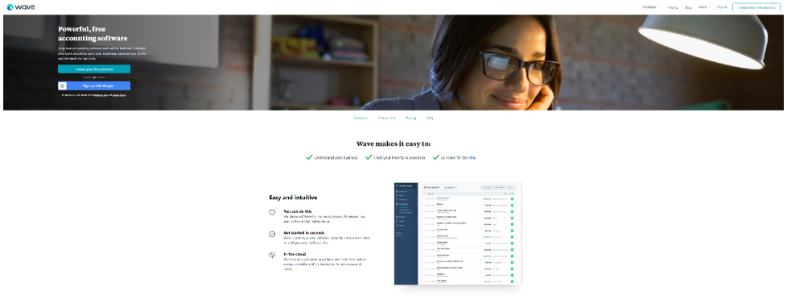
WAVEAPPS
LESSACCOUNTING
Small business accounting software from Less Everything, because your job title isn’t accountant! Accounting software features: invoicing, proposals, CRM and more.
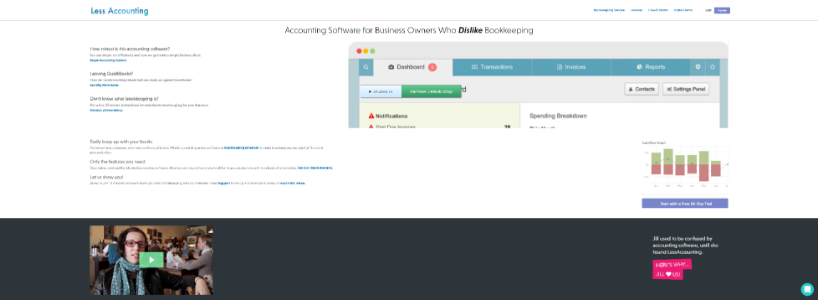
LESSACCOUNTING
MANAGER
Looking for accounting software? Manager is free accounting software for small business. Windows, Mac and Linux.
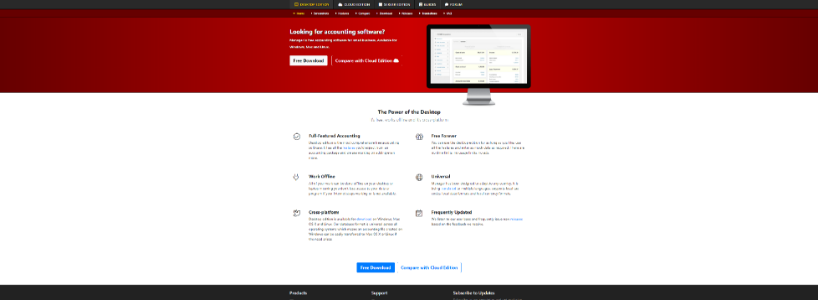
MANAGER
XERO
Xero connects you to all things business. Its online accounting software connects you to accountants and bookkeepers, your bank, and a huge range of business apps. Start a free trial today.

XERO
FRESHBOOKS
The best cloud based small business accounting software. Send invoices, track time, manage receipts, expenses, and accept credit cards. Free 30-day trial.

FRESHBOOKS
ZIPBOOKS
ZipBooks is free accounting software that sends invoices, tracks time and expenses, integrates with your bank & lets you process credit cards. Get started!
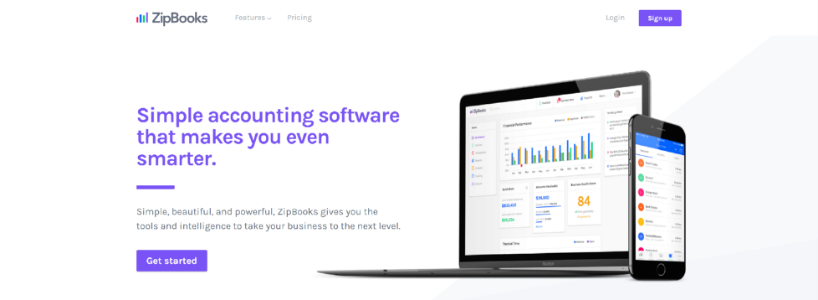
ZIPBOOKS
ACCLAIMSOFTWARE
Acclaim Software’s Cashbook Complete is a quick and easy to use Windows based cashbook for small companies

ACCLAIMSOFTWARE
OWLSOFTWARE
Simple Business Accounting software (SBA) is a very easy to use program that makes bookkeeping quick, easy and affordable. Unlike other programs, Simple Business Accounting uses a highly intuitive single entry accounting method that is ideal for business owners who don’t want to get an accounting degree just to keep track of their income and expenses.
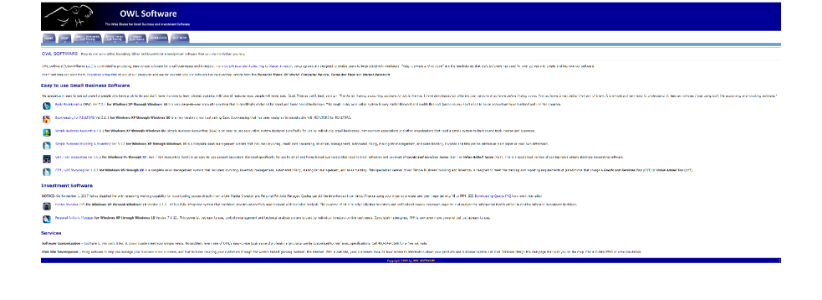
OWLSOFTWARE
KASHOO
Kashoo’s friendly & approachable invoice and accounting software was designed for business owners. Not accountants.
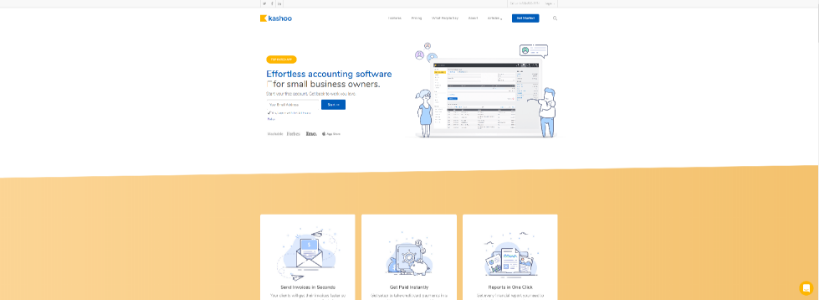
KASHOO
CASHFLOW-MANAGER
Cashflow Manager is simple accounting software designed specifically for small business. Cashflow Manager makes financial record keeping as quick and easy as possible for sole traders and small business owners with no need for any accounting knowledge or experience.

CASHFLOW-MANAGER
What Does Reconcile Mean in Accounting?
I’m sure we’re all aware of the standard definition of reconcile – but what does it mean when we’re talking about money, and more specifically, accounting?
Well, reconciling is a pretty basic accounting procedure where the accountant’s records are compared with the bank statement of the company to see if everything ‘checks out’. Sometimes, a discrepancy is apparent, but it’s only because of the time difference – something hasn’t been recorded yet, or things have been recorded on one but not the other – that there’s an issue.
Sometimes if an outside accounting is reconciling, they won’t realize that the business is using a system different from GAAP, or the generally accepted accounting principles. The majority of businesses do follow GAAP (There are books upon books about the GAAP system), so much so that it’s presumed unless stated otherwise. If these principles aren’t used, it can be very easy for the person reading the documents to not understand what they’re looking at, or worse – presume they know and report something incorrect to the company.
Think of GAAP as the standard of standards. No one really uses anything else – and not disclosing that it does makes the company legally liable for any misunderstandings associated with it. After all, it’s not like someone just tossed together the rules of GAAP in a night and said ‘I guess this works’!
But it’s not all cut and dry. The G in GAAP does stand for general, and you have to realize that these guidelines can be open to interpretation. Sometimes this can lead to creative accounting, which I’m sure you’ve heard of before.
Creative accounting, or massaging the numbers, is when a business pushes the numbers a little to make the company appear more profitable on paper then it is in reality. It’s never right, but this isn’t always a serious issue. Not unless it gets out of hand. Because this sort of behavior can lead to accounting fraud, or cooking the books (A little salt, some basil…).
The end result of accounting fraud isn’t good for anyone. Just look at the news – what happened to Enron was accounting fraud, and you need to consider that massaging the numbers a little could be the first step to something worse.
What’s Involved with Nonprofit Bookkeeping?
A common question to those new to the world of nonprofit organizations is how much accounting and bookkeeping is really necessary for charities, and churches. My answer? It’s more vital than if you were starting your own business. It’s absolutely critical for executives and directors to have at least a basic understanding and skill in financial management, because expecting others to manage it for you isn’t a good option – it’s asking for trouble.
Having the basic understanding of bookkeeping and financial management ensures that the books are always reliable, and being able to generate financial reports and analyze those statements, will give you a deeper understanding of how you’re doing on many different levels.
The financial management you’re going to be getting into with a nonprofit organization is basically like any other companies. Preparations for a third party audit, basic methods of internal controls, a firm grasp of a solid accounting system, budget cycles and annual filings… this is all indispensable to your board of directors, and audit committee, not to mention the overall financial well-being of the organization.
Because each organization is different in the financial issues they fast and the fund-raising methods they have, every organization will be treating their reporting and statement creation a little bit differently. Different situations calls for different analysis of different elements – not being able to create the reports needed because of a lack of accounting structure can be very bad. These reports show if the organization itself is financially stable, what financial obligations it’s facing, how much it’s spending on staff, as well as recent financial changes the organization has experienced.
What sort of reports would be needed by a nonprofit organization?
What’s Common Monthly:
- Balance sheet, or statement of position
- Income verses expenses sheet, showing actual, up to date information
- Strong report showing tax and financial highlights, including grants received and short term loans. This report is essential for managing cash flow
What’s Common Quarterly:
- Detailed fund-raising reports. These should include status reports of foundation proposals and actual vs. projection regarding donations
- Cash flow projection
- Fee for service report, which details fee-paying clients and revenue
- Payroll tax report
What’s Common Annually:
- Federal forms, which include state reports, schedule A, and 990
- Statement of activities
- Statement of position
- Income statement for each and every program
- Draft of financial statements for the year
- Audited financial statements for the entire organization
- Management letter from the auditor
Bookkeeping Doesn’t Need to be Scary
Don’t be daunted, or afraid. Bookkeeping isn’t scary – it’s just keeping track of all of your expenses, as well as your profits, as well as making sure everything is in the right place, and that it’s all organized.
Bookkeeping doesn’t have to be scary. Here are the basics of bookkeeping to help you get your foot in the door if you’re thinking of tackling your business’s records.
Always have the Proof
This is something many people forget, but it’s so obvious – you always have to make sure that you get receipts for any business related expense. If you don’t have the receipt, then the government won’t allow the expense! Anything not backed up on paper is automatically a personal expense, and taxable to you. It doesn’t matter if it’s small or large, every single expense needs a receipt.
If you’re just starting out, using software is the best option, as it streamlines the process a lot. Remember that it also depends on the size of your business – if you have $1 million in sales, you’re probably too big for a simple spreadsheet. And you don’t need $1,000 software if it’s just you!
Keep it Balanced
Making sure everything is balanced is vital to your entire business. Your bank balance entries in your bookkeeping system must match your bank account statements. This is how you know if you’ve somehow missed entering something in – if it doesn’t match, something isn’t right.
With cash transactions, remember that they should be entered into a separate ‘Cash’ account, just like it would be treated at the bank. Always keep the receipts for your cash transactions as well, because it’s just another part of keeping track of everything.
You should always have a separate business and personal account as well. The IRS has rules against mingling accounts, and it makes everything so much easier when it’s separate!
Debits and Credits
If you don ‘t know the debits and credits system, it’s going to take a lot more room then what I have to explain it all to you. The concept is so confusing, even the pro’s get confused now and again.
Basically, what I mean with this point is to just understand the concept of costs and revenues. Any cost is something you’re paying for, and any revenue is something that is coming into your company. All of this is without taxes, because they should be tracked separately.
Personal contact info – slikgepotenuz@gmail.com
Permanent Address :- Montville, NJ
CEO and co-founder at Cloudsmallbusinessservice.com